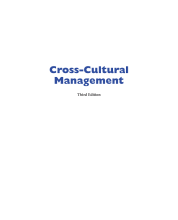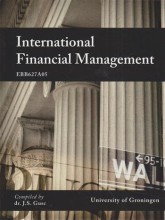Introduction to international and comparative law
18 important questions on Introduction to international and comparative law
Private international law example bodies
· Torts
· Contracts and sales
· Transportation
· Money and banking
· Financing
· Securities regulations
· Intellectual property
· Antitrust
· Antifraud
· Taxation
· Inheritances
· Nationality
· Marriage and divorce
under article 38(1) of the Statue of the ICJ which sources are they permitted to use?
- international conventions
- international custom, as evidence of a general practice accepted as law
- the general principle of law recognized by civilized nations
- subject to provisions of article 59, judicial decisions and teachings of the most highly qualified publicists of various nations.
once engaged in a contract including arbitration
- Higher grades + faster learning
- Never study anything twice
- 100% sure, 100% understanding
There is no way to force a state to comply with a judgment. However, State A may have recourse to the
what is a convention?
legally binding agreement between states sponsored by an international organization
what is persistent objection?
active rejection of a customary practice from its first observance by other states
non-self-executing treaty
Estoppel is a legal role that?
one cannot make an allegation or denial of fact that is contrary to
one’s previous actions or words.
What does it mean when a state is dependend?
A state that has surrendered its rights to conduct international
affairs to another state.
The council of European Union
Representative of the member state governments and the co-legislative body (with Parliament) of the EU.
Free trade area (FTA)
A group of states that have reduced or eliminated trade barriers among themselves but maintain their individual tariffs in dealing with other states.
economic consultative association
A group of states that exchanges information, coordinates economic policy, and promotes trade cooperation.
What is the EU in law
o IS A SUPRANATIONAL ORGANISATION
o Goal: economic integration – 4 movements
o Member states’ sovereignty:
§ Gave up/hand over a part of their political, legal & economic to the EU
with which 3 kinds of international relationships does IL deal with?
states and states, states and persons, persons and persons
Explain - Hierarchical and logical system
- Constitution
- Law (Legislation or Act)
- Decisions of the Court (e.g. and bureaucratic organizations and institutions)
- Contracts
What is a private person and what is a juridical person?
Juridical person: is a non-human legal entity, in other words any organization that is not a single natural person but is authorized by law with duties and rights and is recognized as a legal person and as having a distinct identity.
Subordinate organizational structures (to parent company)
Representative office: Does not conduct business for the company
Agent: Authority to act on behalf of another
Holding company: To supervise and coordinate the operations of subsidiary
The 3 types of organisational structures
- The "non-multinational enterprise" (the simplest form)
- is a domestic firm that operates internationally through independent foreign agents.
- The "national multinational enterprise" (somewhat more complex form)
- a parent-firm established in one state that operates through branches and subsidiaries in other states.
- The "international multinational enterprise"(the most complex form)
- two or more parents from different states that co-own subordinate operating businesses in two or more states.
The question on the page originate from the summary of the following study material:
- A unique study and practice tool
- Never study anything twice again
- Get the grades you hope for
- 100% sure, 100% understanding
































